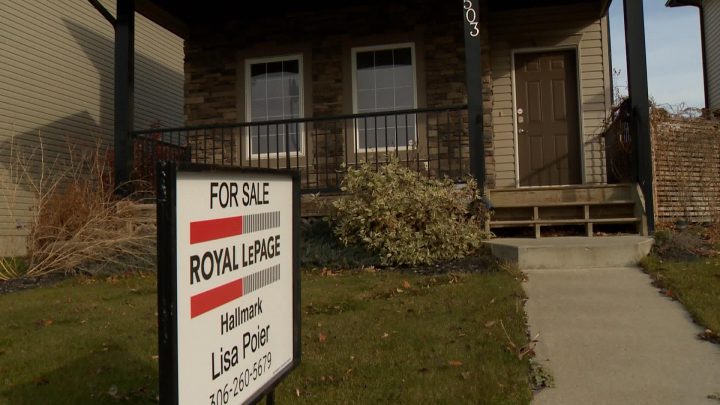Housing prices are expected to drop in Regina due to COVID-19, according to recent surveys done by Royal LePage.

A house price survey and market survey forecast by Royal LePage indicates that if the novel coronavirus is still having an impact by the end of summer, the price of a home will fall by four per cent, year-over-year to $296,293.
If the COVID-19 situation is contained by the second quarter, April to June, home prices could still drop by 2 per cent year-over-year, to $308,638.
READ MORE: Self-isolation leads to decline in crime, Saskatoon police say
According to Royal LePage, the average price of a home in Regina decreased by 2.1 per cent, year-over-year, to $317,400 in the first quarter of 2020, January to March.
Over the same time, condo prices in Regina fell by 12.9 per cent to $194, 470. Bungalow prices dropped by 6.5 per cent to $284,033.

Get breaking National news
“We were beginning to see signals of a market recovery, which was disrupted by the pandemic,” said Mike Duggleby, Royal LePage Regina Realty’s broker and owner.
“However, Regina’s real estate market has seen its share of challenges over the past few years and prices are not likely to significantly decline.”

The average price of a two-storey in Regina at the end of the first quarter of 2020 is $399,564, a 4.8 per cent increase, year-over-year.
Questions about COVID-19? Here are some things you need to know:
Health officials caution against all international travel. Returning travellers are legally obligated to self-isolate for 14 days, beginning March 26, in case they develop symptoms and to prevent spreading the virus to others. Some provinces and territories have also implemented additional recommendations or enforcement measures to ensure those returning to the area self-isolate.
Symptoms can include fever, cough and difficulty breathing — very similar to a cold or flu. Some people can develop a more severe illness. People most at risk of this include older adults and people with severe chronic medical conditions like heart, lung or kidney disease. If you develop symptoms, contact public health authorities.
To prevent the virus from spreading, experts recommend frequent handwashing and coughing into your sleeve. They also recommend minimizing contact with others, staying home as much as possible and maintaining a distance of two metres from other people if you go out.
For full COVID-19 coverage from Global News, click here.









Comments